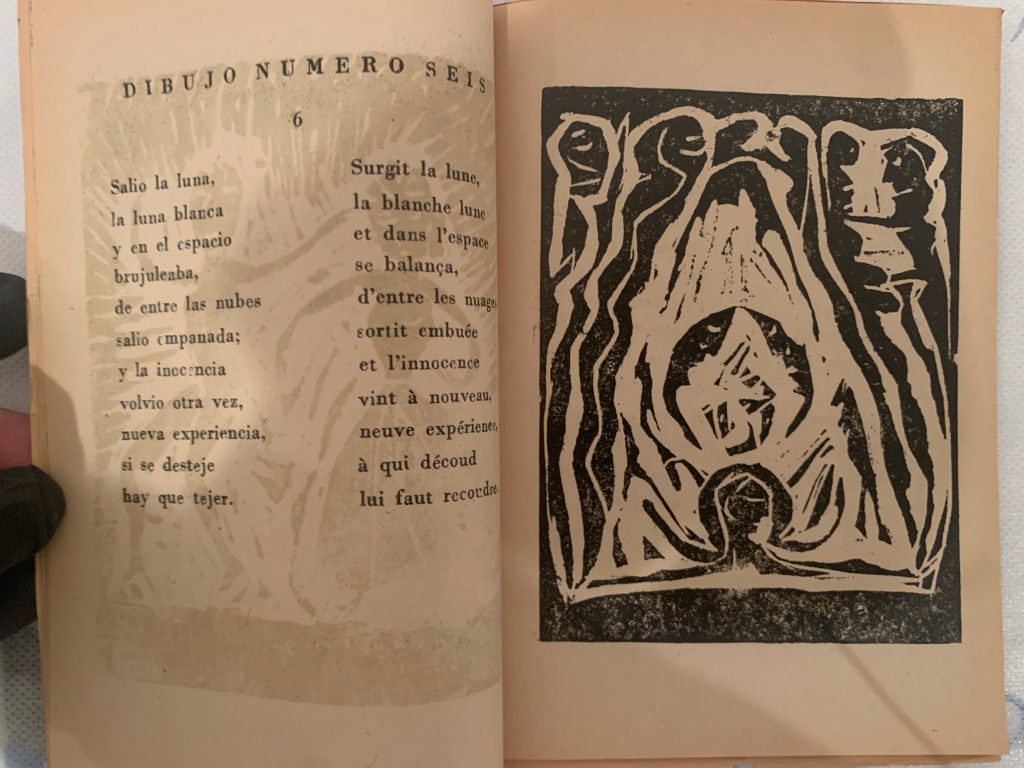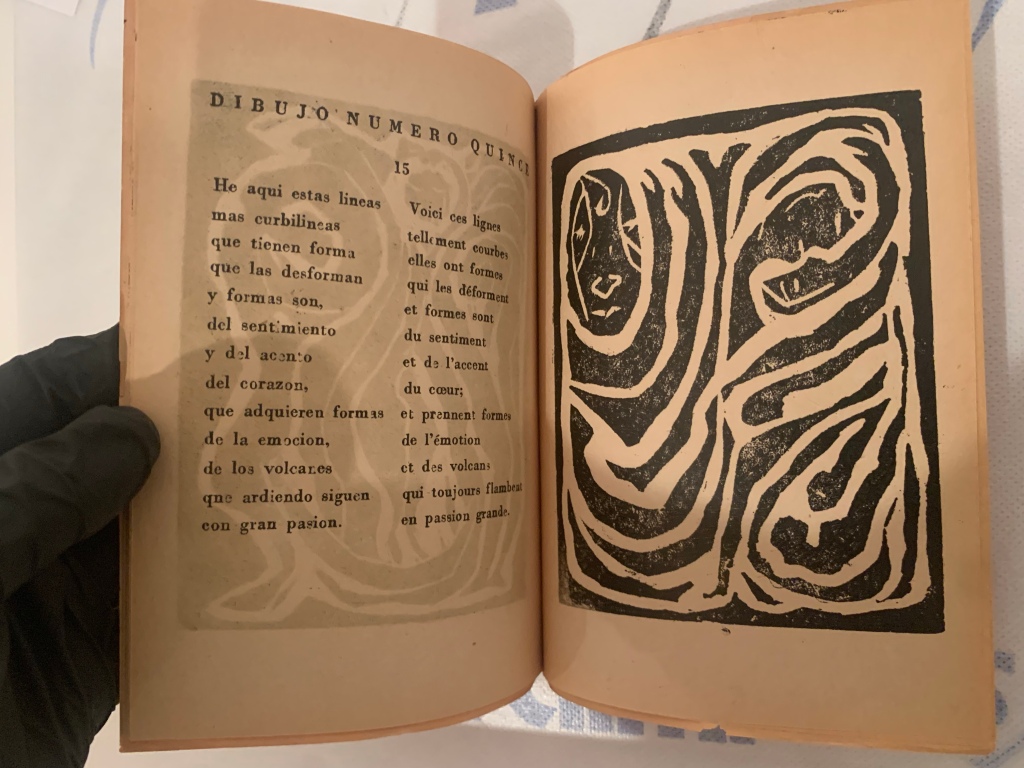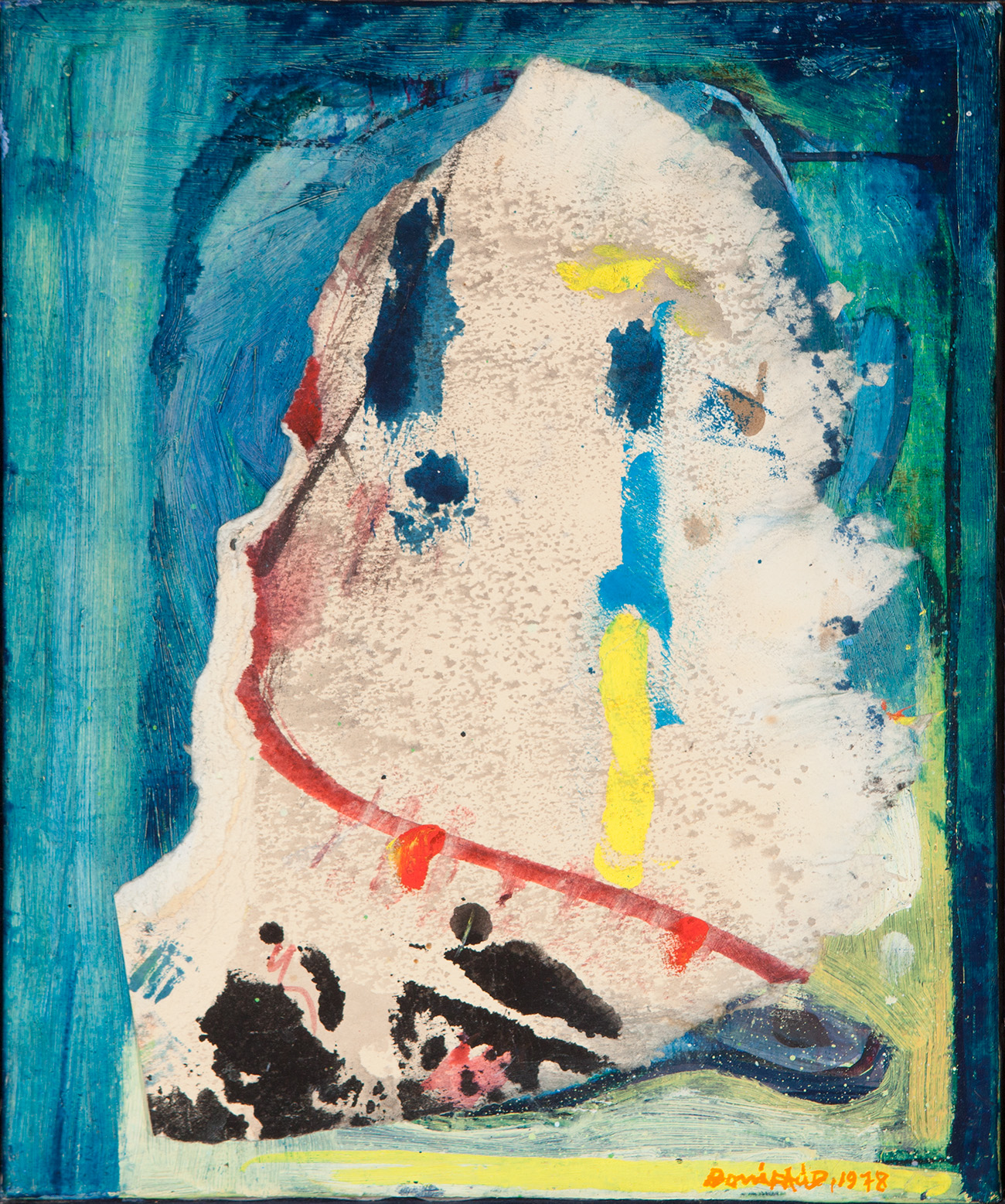
































Without Sky” is a science fiction short story, first published as an annex to the magazine Russian Pioneer, No 46 (May 2014).
«Sin cielo / no hay cielo» es un cuento breve de ciencia ficción, publicado por primera vez junto con la revista Russian Pioneer, No 46 (Mayo 2014).
There was no sky over our village. That’s why we went to the city to watch the moon and birds, on the other side of the river. The people in the city were not thrilled to have us, but they did not try to stop us. On one of the hills, where the brick church stood, they even built an observation platform. Since for some reason they considered us drinkers, in addition to benches and a pay telescope, they built a small tavern by the observation deck, and a police post.
No había cielo sobre nuestro poblado / pueblo. Es por lo que fuimos a la ciudad a mirar la luna y los pájaros, del otro lado del río. La gente de la ciudad no estaba encantada de tenernos, pero tampoco intentaban detenernos. En una de las colinas, donde se alzaba la iglesia de ladrillos, incluso habían construido una plataforma de observación. Desde que por alguna razón ellos nos consideraban bebedores/, además de verjas y un telescopio de pago, ellos construyeron una pequeña taberna junto al puente de observaciòn y un puesto / garita estación de policía.
I could understand the city people. They had suffered greatly from the rage and envy of newcomers. And though it was insulting that they considered us – their closest neighbors, almost city people ourselves – intruders, still, we could understand them. And after all, they understood us. They didn’t drive us away. No matter what they wrote on their websites, they didn’t drive us away.
Podía entender a la gente de ciudad. Ellos habían sufrido profundamente el odio y la envidia de los recién-llegados. Y aunque fuera un insulto que nos considerasen – sus vecinos más cercanos, casi gente de ciudad nosotros mismos – intrusos, aún así, podíamos entenderles/les entendíamos. Y al fin y al cabo, ellos nos entendían. Ellos no nos echaban. No importa lo que escribieran en sus páginas web, ellos no nos echaban.
Everyone understood, if they were honest, that it was not our fault we were left with no sky. On the contrary, it was a great honor for us, in a way. The marshals of the four coalitions chose our sky for their decisive battle because the sky over our village was the best in the world: calm and cloudless. The sun flowed through our sky like a wide, peaceful river. I remember them well, the sun and the sky. The marshals found this place ideal for the final battle. It’s not surprising. This was when all armies were airborne, and here there were no clouds, no turbulence. It was perfect.
Todos entendían, siendo honestos, que no había sido culpa nuestra el que se nos dejara sin cielo. Por lo contrario, era un gran honor para nosotros, en cierto sentido/de algún modo. Los marshals de las cuatro coaliciones eligieron nuestro cielo para su batalla decisiva porque el cielo sobre nuestro poblado / pueblo era el mejor del mundo: calmado y despejado / sin nubes. El sol fluía por nuestro cielo como un amplio, / apacible río. Los recuerdo bien, el sol y el cielo. A los marshals este lugar les les pareció ideal para la batalla final. No sorprende/resulta sorprendente. Era / se trata de cuando todos los ejércitos eran airborne, y aquí no había nubes, no turbulencias. Era perfecto.
This was the first non-linear war. In the primitive wars of the nineteenth, twentieth, and other middle centuries, the fight was usually between two sides: two nations or two temporary alliances. But now, four coalitions collided, and it wasn’t two against two, or three against one. It was all against all.
Esta/Era la primera guerra no-linear. En las guerras primitivas del décimonoveno, vigésimo, y otros siglos medios, la lucha /la contienda era normalmente entre dos partes: dos naciones o dos alianzas temporales. Pero ahora, cuatro coaliciones colisionaban, y no eran dos contra dos, o tres contra una. Eran todas contra todas.
And what coalitions they were! Not like the earlier ones. It was a rare state that entered the coalition intact. What happened was some provinces took one side, some took the other, and some individual city, or generation, or sex, or professional society of the same state – took a third side. And then they could switch places, cross into any camp you like, sometimes during battle.
Y qué coaliciones! No como las primeras. Raro era el estado que entraba/se intacto en/a la coalición. Lo que pasaba es que algunas provincias apoyaban a unos/ , algunas a otros/, y alguna ciudad individual/, o generación, o sexo, o asociación profesional del mismo estado – apoyaban a unos terceros. Y después podían cambiar lado/bando, cruzar *
The goals of those in conflict were quite varied. Each had his own, so to speak: the seizing of disputed pieces of territory; the forced establishment of a new religion; higher ratings or rates; the testing of new military rays and airships; the final ban on separating people into male and female, since sexual differentiation undermines the unity of the nation; and so forth.
Los objetivos de los que estaban en conflicto eran bastante variados. Cada uno tenía el suyo, por así decirlo: la toma* de una zona del territorio en disputa; el establecimiento por la fuerza de una nueva religión; calificaciones o tasas más altas; *nuevos el ensayo de nuevos rayos y aeronaves militares; la prohibición final a separar las personas entre hombres y mujeres, desde que la diferenciación sexual socava/mina la unidad de la nación; y así todo/ etc.
The simple-hearted commanders of the past strove for victory. Now they did not act so stupidly. That is, some, of course, still clung to the old habits and tried to exhume from the archives old slogans of the type: victory will be ours. It worked in some places, but basically, war was now understood as a process, more exactly, part of a process, its acute phase, but maybe not the most important.
Los comandantes de corazón sencillo // del pasado se afanaban/esmeraban por la victoria. Ahora no actuaban con tanta estupidez. Es decir, alguno, claro está, aún se aferraba a los viejos hábitos e intentaba exhumar de los archivos viejos eslóganes del tipo: la victoria será nuestra. Esto función en algunos lugares, pero básicamente, la guerra ahora se entendía como un proceso, más exactamente, como parte de un proceso, su fase aguda, pero quizás no la más importante.
Some peoples joined the war specifically to be defeated. They were inspired by the flowering of Germany and France after being routed in the second World War. It turned out that to achieve such a defeat was no simpler than achieving victory. Determination, sacrifice, and the extraordinary exertion of all forces were required, and, in addition, flexibility, cold-bloodedness, and the ability to profitably administer one’s own cowardice and dullness.
Algunas personas se unieron a la guerra específicamente/explícitamente para ser derrotados. Estaban inspirados por el florecer de Alemania y Francia tras ser derrotados en la segunda Guerra Mundial. Resultó que para alcanzar/conquistar tal derrota no era más sencillo que alcanzar la victoria. Determinación, sacrificio, y el extraordinario esfuerzo de todas las fuerzas eran requeridos, además de, flexibilidad, sangre fría, y la habilidad de administrar provechosamente la propia cobardía y torpeza.
But all of this was realized and analyzed later by historians and economists. Then, it was just war, World War V, and rather horrifying. I was six. We were all six or younger, all who today enter the Society, who are thirty years old now. We remember how, from the four corners of our sky, the four great armadas swooped down. These were not roaring, screeching and howling airborne apparatus of the old kind, as we had become used to seeing in the video-archives. For the first time, the newest, absolutely silent technology was employed, with some kind of invisible systems of complete noise reduction.
De todo esto ya se dieron cuenta y dieron cuenta posteriormente historiadores y economistas.
Ogni mattino, quando mi risveglio ancora sotto la cappa del cielo, sento che per me è capodanno.
Perciò odio questi capodanni a scadenza fissa che fanno della vita e dello spirito umano un’azienda commerciale col suo bravo consuntivo, e il suo bilancio e il preventivo per la nuova gestione. Essi fanno perdere il senso della continuità della vita e dello spirito. Si finisce per credere sul serio che tra anno e anno ci sia una soluzione di continuità e che incominci una novella istoria, e si fanno propositi e ci si pente degli spropositi, ecc. ecc. È un torto in genere delle date.
Dicono che la cronologia è l’ossatura della storia; e si può ammettere. Ma bisogna anche ammettere che ci sono quattro o cinque date fondamentali, che ogni persona per bene conserva conficcate nel cervello, che hanno giocato dei brutti tiri alla storia. Sono anch’essi capodanni. Il capodanno della storia romana, o del Medioevo, o dell’età moderna.

"¡Yo de pintura no sé, no la sé explicar, sé lo que me pasa a mí. Si estoy pintando, estoy pensando en putas y si estoy con una puta, estoy pensando en pintura. ¡Por eso la pintura es tan cojonuda!" Bonifacio. 1997 Sigue leyendo
Palazzo Orsini, Bomarzo, Italia, 1952. Herbert List